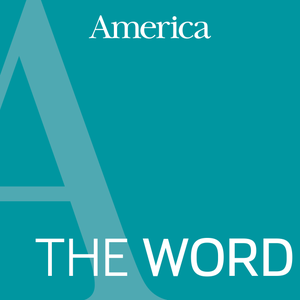
The Word: Scripture Reflections
America Media
Scripture Reflections from America Media
- 40 minutes 36 secondsTaizé head: Christian unity is about reconciliation, not theological disputes
When Roger Schutz, a Protestant minister from Switzerland, founded the Taizé community in 1940 in a small village in Southern Burgundy, France, amid the turmoil of World War II, he envisioned it as “a parable of communion.” Brother Matthew, the first Anglican and Englishman to lead this unique Christian community as its prior, reflects on Brother Roger’s vision: “It was a way of saying that what we lived as a community together should be like a sign that didn’t need too much explanation.”
On “Preach” this week, released during the Week of Prayer for Christian Unity—a celebration observed by Christian churches worldwide—Brother Matthew, preaching for the Third Sunday in Ordinary Time, Year C, emphasizes the importance of moving beyond theological debates to focus on fostering reconciliation and communion among Christians. “I think that’s one of the challenges that we face—how to dare to go towards the other, even when you know that you’re not going to agree,” he says. “Because if we can’t do that, then this parable doesn’t work.”
Read the Scripture readings and full text of this week’s homily
“Preach” is made possible through the generous support of the Compelling Preaching Initiative, a project of Lilly Endowment Inc.
Learn more about your ad choices. Visit megaphone.fm/adchoices
21 January 2025, 6:00 pm - 37 minutes 52 secondsMLK, Trump, and the wedding at Cana: A call to listen and heal
“Race has become something that, in many homes, in many places, is encountered when you see it on the news,” says the Rev. Kareem Smith. “But to look at it as a gift, to see other people as a gift and what they have to offer as something that is beautiful—that is to see the creation of God.”
On “Preach” this week, the Rev. Kareem Smith, pastor of St. Michael the Archangel Church in Co-op City, the Bronx, reflects with host Ricardo da Silva, S.J., on the Gospel reading for the Second Sunday in Ordinary Time—the wedding at Cana. Connecting the scarcity of wine and the tension between Jesus and his mother to modern challenges like racial justice and political divides, Kareem points to the tension many feel as Martin Luther King Jr. Day and Donald Trump’s second inauguration fall on the same day, Jan. 20, 2025. “There’s this breakdown in conversation,” he says of the state of the nation. “We desire to be heard, but are we failing to listen?”
Kareem, who is also president of the National Black Catholic Clergy Caucus, emphasizes Mary’s words—“Do whatever He tells you”—as a call to trust God to transform scarcity into abundance and view divisions as opportunities for renewal through humility and faith.
Read the Scripture readings and full text of this week’s homily
“Preach” is made possible through the generous support of the Compelling Preaching Initiative, a project of Lilly Endowment Inc.
Learn more about your ad choices. Visit megaphone.fm/adchoices
14 January 2025, 7:03 pm - 45 minutes 12 secondsEmbracing the simplicity of Jesus’ birth: A Christmas Eve homily inspired by Henri Nouwen
On Christmas Eve, Ukrainian families create a living Nativity scene by spreading straw across the floor and placing hay beneath the dinner tablecloth. “This gesture connects the birth of Jesus to the natural world, with the presence of the field permeating the home,” Metropolitan Borys Gudziak says.
Portuguese families observe Noite da Consoada (Night of Comfort and Consolation) with a humble meal of salt cod, cabbage and potatoes. “The idea is to echo the simplicity of the day,” Ricardo da Silva, S.J., shares with Metropolitan Gudziak. “Jesus was born in this very simple setting.” These practices, Ricardo suggests in this year’s final episode of “Preach,” remind us not only of Christ’s simplicity but also offer a nudge for preachers: “The best thing to do is to preach simply.”
[Please complete a brief survey and tell us what you love (or not) about “Preach”]
Metropolitan Borys Gudziak of the Ukrainian Catholic Archeparchy of Philadelphia leads the Ukrainian Catholic community in the United States. Born in Syracuse, N.Y., he holds a doctorate in Slavic and Byzantine cultural history from Harvard University. He was the founding president and rector of the Ukrainian Catholic University in Lviv, Ukraine, from 2002 until 2012, and served Ukrainian Greek Catholics in Western Europe until 2018.
His preaching is deeply influenced by his dear friend and mentor, Henri Nouwen, who was known for his emphasis on simplicity and authenticity. “People today know Henri from his writings,” he says, “but I would say his preaching was an order above because it was personal.” The metropolitan recalls what he learned from hearing hundreds of Nouwen’s homilies when he was a student at Harvard. “Henri just said: ‘Keep it very simple. Use keywords many times.’”
And it is this ability to communicate simply that the metropolitan shows in his Christmas Eve homily, when he uses vivid expressions like “the clear odor of the manure” and “the bells of the cows.” By drawing on Nouwen’s wisdom, the metropolitan invites us to approach the Christmas mystery with renewed awe, wonder and openness.
Read the Scripture readings and full text of this week’s homily
“Preach” is made possible through the generous support of the Compelling Preaching Initiative, a project of Lilly Endowment Inc.
Learn more about your ad choices. Visit megaphone.fm/adchoices
23 December 2024, 7:10 pm - 32 minutes 56 secondsAn unexpected focus for Gaudete Sunday: A homily on sin
On Gaudete Sunday—a day in Advent dedicated to rejoicing—the Rev. Justin Lopina will surprise his congregation by focusing his homily on sin. As the newly assigned pastoral administrator at St. Joseph Catholic Church in Wauwatosa, Wis., he believes that our fear of sin—what he calls “our fear of letting God down”—often robs us of joy. Justin joins host Ricardo da Silva, S.J., to discuss how John the Baptist’s call to repentance in the Gospel for Gaudete Sunday leads to joy more than simply moral obligations. They also explore the essentials of great preaching, emphasizing the importance of using one’s body and physical presence and keeping homilies short (around 8 minutes) to maintain the congregation’s attention.
Read the full text of this week’s homily and Scripture readings.
“Preach” is made possible through the generous support of the Compelling Preaching Initiative, a project of Lilly Endowment Inc.
Learn more about your ad choices. Visit megaphone.fm/adchoices
9 December 2024, 3:40 pm - 38 minutes 36 secondsWhat parents want in a homily for their children (and themselves)
How can a preacher deliver a homily that captures the hopes of younger audiences—from toddlers to teens—while keeping parents and the entire congregation engaged? It’s a tall order, but in this special “Preach” episode, host Ricardo da Silva, S.J., tackles this challenge in another panel discussion, this time with three America Media colleagues and parents: Tim Reidy, deputy editor-in-chief; Kerry Weber, executive editor; and Heather Trotta, vice president of advancement. Together, they share their experiences of nurturing their children’s faith and reflect on what makes for a homily that connects with everyone.
“Preach” is made possible through the generous support of the Compelling Preaching Initiative, a project of Lilly Endowment Inc.
Learn more about your ad choices. Visit megaphone.fm/adchoices
2 December 2024, 5:00 pm - 39 minutes 19 secondsAdvent homilies inspired by Pope Francis’ writing on the Sacred Heart
Sam Sawyer, S.J., editor-in-chief of America Media, returns to “Preach” to discuss his Advent homily series, designed to be more cohesive than the usual week-to-week, stand-alone Sunday homilies that preachers typically prepare. Sam shares with host Ricardo da Silva, S.J., how Pope Francis’ latest encyclical, Dilexit Nos, inspired him to create these homilies for the season, specially commissioned for Homiletic & Pastoral Review.
Over the four weeks, Sam leads the congregation through a four-part reflection on the heart: awakening the heart, trusting its activity and passion, recognizing our heart’s capacity to desire something greater, and embracing God’s grace in our heart as it overflows from within us
Read the full text of this week’s homily and Scripture readings.
“Preach” is made possible through the generous support of the Compelling Preaching Initiative, a project of Lilly Endowment Inc.
Learn more about your ad choices. Visit megaphone.fm/adchoices
25 November 2024, 6:00 pm - 33 minutes 51 secondsThe kingship of Christ reveals God's mercy, not condemnation
This episode is a re-airing of our 2023 episode for the feast of Christ the King.
The Scripture readings for the Solemnity of our Lord Jesus Christ, King of the Universe, invite us to interpret the Scriptures through a lens that is perhaps less common for this celebration. Agbonkhianmeghe Orobator, S.J, tries to imagine ways in which the readings for the last Sunday of the liturgical calendar, “can be perceived less as a hierarchical, patriarchal or monarchical depiction of who God is in Christ through the Spirit, and more about how God relates to us; in humility, in care, in tenderness.”
Father Orobator, a Jesuit of the North-West Africa Province, is an internationally acclaimed theologian and a convert to Catholicism from traditional African religion. He is the dean at the Jesuit School of Theology at Santa Clara University.
On this week’s “Preach,” Orobator shares with host Ricardo da Silva, S.J., how thinking of the Gospels as stories can subvert hierarchical, monarchical, and even patriarchal readings of the Scriptures.
Read the full text of this week’s homily and Scripture readings.
“Preach” is made possible through the generous support of the Compelling Preaching Initiative, a project of Lilly Endowment Inc.
Learn more about your ad choices. Visit megaphone.fm/adchoices
18 November 2024, 4:10 pm - 32 minutes 9 secondsGod lifts up the underdogs
When Thomas Massaro, S.J., hears underdog stories, he recognizes the various ways they parallel biblical narratives. “I’m a moral theologian, so I pretty much have to do this,” he says. “It’s part of my task to reach for some moral implications.” Those implications? If you’re a preacher, don’t moralize at the pulpit—especially when you are preaching on the first Sunday after the 46th United States presidential election. Instead, adopt the perspective of the underdog, and humbly strive to build bridges between people who come to Church with opposing viewpoints.
In this episode of “Preach” for the 32nd Sunday in Ordinary Time, Year B, Tom joins Ricardo da Silva, S.J. to discuss how preachers can avoid polarizing issues while keeping an eye toward social justice.
Tom is a scholar of Catholic social thought. He holds the Laurence J. McGinley Endowed Chair in Religion and Society at Fordham University in New York. His most recent books include Pope Francis as Moral Leader (Paulist Press, 2023), and Mercy in Action: The Social Teachings of Pope Francis (Rowman & Littlefield, 2018).
Learn more about your ad choices. Visit megaphone.fm/adchoices
4 November 2024, 3:40 pm - 43 minutes 54 secondsAfter the election, people may know your political party—but will they know you’re a Christian?
“If scripture is the living word of God, then it has something to say about anything,” the Rev. John Kartje reflects on this episode of “Preach” just ahead of the United States presidential election. His advice to his congregation: live out your Christian faith every day, regardless of the election outcome. “When you wake up next Wednesday, the political world will have changed,” he says, “But the world transformed by the life, death, resurrection, and sending of the Holy Spirit changed 2000 years ago. And your world changed on the day of your baptism.”
John joins Ricardo da Silva, S.J. on “Preach” to explore how to preach about civic responsibility before the election. John cautions against the tendency to “live like the ancient Israelites” who trusted in temporary, precarious human leaders rather than the eternal high priest, Jesus Christ.
A native of northwest Indiana and now a priest of the Archdiocese of Chicago, John currently serves as the rector and president of the University of Saint Mary of the Lake/Mundelein Seminary. He holds a Ph.D. in astrophysics from the University of Chicago, which has enabled him to embrace mystery in both his scientific research and his religious vocation. He has also served as campus chaplain at Northwestern University and as a parish priest.
Readings and transcript of John's homily
Learn more about your ad choices. Visit megaphone.fm/adchoices
28 October 2024, 7:30 pm - 39 minutes 6 secondsBlindness is not a curse to be broken
Dr. Moira Egan does not relate to Bartimaeus, a blind man who encounters Jesus in Mk 10:46-52 and begs for sight. Moira was born blind, but she has never begged for sight. Why should blindness exempt her from the Kingdom of God? “There’s an assumption that, if any blind person were asked the open-ended question, ‘What do you want?’, ... they would say they want to see,” Moira says. “I think it’s hard for people to believe that isn’t true.”
In a conversation inspired by Pope Francis and his invitation to building a “culture of encounter,” Ricardo da Silva, S.J., welcomes Moira to “Preach” to reflect upon the difficulty of certain scripture passages, how to avoid ableist language, and consider the experiences of people with disabilities.
Moira serves as the director of prestigious awards and graduate fellowships at Pace University in New York City. She also is an active parishioner at The Church of St. Francis Xavier, where she is involved with Ability Xavier. This program not only advocates for justice and understanding for persons with disabilities, but bridges the accessibility gap by providing tangible worship accommodations such as Braille worship aids, auditory assistive headsets for persons with hearing loss, and American Sign Language interpreters.
[Learn more about disability theology—email Gregory Woods to join a private Facebook discussion group.]
Learn more about your ad choices. Visit megaphone.fm/adchoices
21 October 2024, 2:28 pm - 46 minutes 22 secondsLGBTQ Catholics deserve preaching that builds bridges—not barriers
This special episode of “Preach” features a live recording at the Outreach 2024 conference at Georgetown University in Washington, D.C, where Ricardo da Silva, S.J., is joined by panelists Carly Reidy, Jim Scholl, and Ish Ruiz to discuss how preaching can be a source of spiritual nourishment for LGBTQ+ Catholics and allies.
A music minister of 20 years and the proud parent of a bisexual daughter, Carly works in administration at a diocesan parish in Burlington, Mass. Jim is a proud gay Catholic who works in non-profit Catholic fundraising and attends mass at St. Ignatius Parish in Chestnut Hill, Mass. Ish, a queer person from Puerto Rico with 11 years of teaching experience in Catholic education, often hears stories of exclusion from his queer students who reference preaching that draws exclusively on “conventional” relationships.
Guests shared times they heard a homily that was affirming, along with experiences that hurt more than they helped. For Carly, a shining moment occurred in her diocesan parish when a priest reflected on the words of John 13:34-35—“As I have loved you, so you must love one another.” Extending the homily to include every race, class, and sexual orientation represented among the congregation, the preacher distinguished tolerance from acceptance, and acceptance from love. “It was the first time in a diocesan parish that I had experienced someone speaking about the LGBTQ community in a positive light,” Carly says.
On the Outreach website, You can find news, essays, resources and community for LGBTQ Catholics and those who minister for them in the church worldwide today.
Learn more about your ad choices. Visit megaphone.fm/adchoices
15 October 2024, 7:05 pm - More Episodes? Get the App
Your feedback is valuable to us. Should you encounter any bugs, glitches, lack of functionality or other problems, please email us on [email protected] or join Moon.FM Telegram Group where you can talk directly to the dev team who are happy to answer any queries.
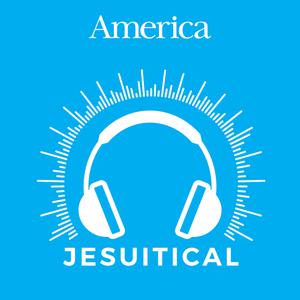 Jesuitical
Jesuitical
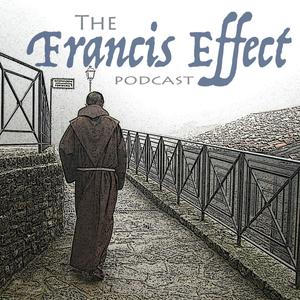 Francis Effect podcast
Francis Effect podcast
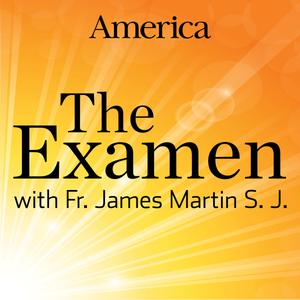 The Examen with Fr. James Martin, SJ
The Examen with Fr. James Martin, SJ
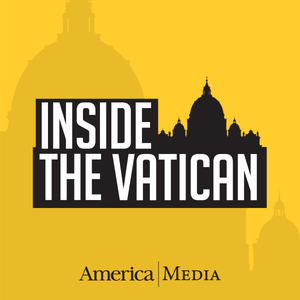 Inside The Vatican
Inside The Vatican
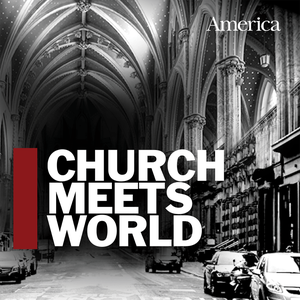 Church Meets World: The America Magazine Podcast
Church Meets World: The America Magazine Podcast
 God In All Things
God In All Things